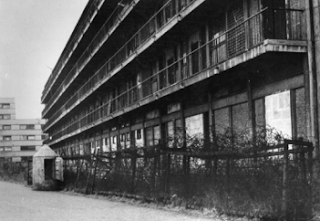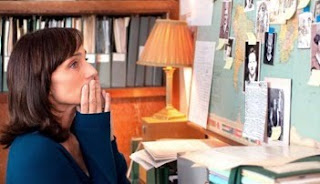 Paris, July 1942: Sarah, a ten year-old girl, is brutally arrested with her family by the French police in the Vel’ d’Hiv’ roundup, but not before she locks her younger brother in a cupboard in the family's apartment, thinking that she will be back within a few hours.
Paris, July 1942: Sarah, a ten year-old girl, is brutally arrested with her family by the French police in the Vel’ d’Hiv’ roundup, but not before she locks her younger brother in a cupboard in the family's apartment, thinking that she will be back within a few hours.Paris, May 2002: On Vel’ d’Hiv’s 60th anniversary, journalist Julia Jarmond is asked to write an article about this black day in France's past. Through her contemporary investigation, she stumbles onto a trail of long-hidden family secrets that connect her to Sarah. Julia finds herself compelled to retrace the girl's ordeal, from that terrible term in the Vel d'Hiv', to the camps, and beyond. As she probes into Sarah's past, she begins to question her own place in France, and to reevaluate her marriage and her life.
Tatiana de Rosnay offers us a brilliantly subtle, compelling portrait of France under occupation and reveals the taboos and silence that surround this painful episode. ~publishers website

The greatest mass-arrest of Jews ever carried out on French soil is known as the Vél’ d’hiv’ Round-up. It involved 13,000 victims from Paris and its suburbs. Over slightly more than two days, the Round-up involved nearly a third of the 42,000 Jews deported to Polish death camps in 1942. The statistics for this terrible year account for over half of the total 76,000 Jewish deportations from France. ~a case study
"The French have tended to confront their record under Nazi occupation with a mixture of denial, silence and myth. The second world war was not on the school curriculum until 1962. Textbooks scarcely mentioned the Holocaust. No French leader from de Gaulle to Mitterrand acknowledged the state's part in deporting Jews to Nazi death camps. It was not until Jacques Chirac became president in 1995 that the French state accepted its official complicity, prompting much soul-searching over collaboration, memory and guilt." ~The Indian Express
 Sarah's Key (Elle s’appelait Sarah)
Sarah's Key (Elle s’appelait Sarah)The Movie
A woman from the present becomes obsessed with tracking down a young woman from the past – for reasons even she can’t quite articulate – in Sarah’s Key, a staid but stubbornly involving drama. Though ostensibly yet another film about the horrors of the Holocaust, director Gilles Paquet-Brenner’s adaptation of Tatiana de Rosnay’s novel uses the atrocity as a treatise on personal survival and new beginnings that is eloquently delivered by star Kristin Scott Thomas. ~screen daily
Remembering the Vel d'Hiv
 A another new film suggests France is finally coming to terms with its wartime history. “La Rafle” recreates the French police’s round-up in 1942 of 13,000 Paris Jews, including 4,000 children, and the families’ transfer to the capital’s Vélodrome d’Hiver, en route to the death camps. It unfolds through the eyes of Jo Weismann, an 11-year-old who later escaped from an internment camp near Orléans after his parents were sent to Poland. ~the economist
A another new film suggests France is finally coming to terms with its wartime history. “La Rafle” recreates the French police’s round-up in 1942 of 13,000 Paris Jews, including 4,000 children, and the families’ transfer to the capital’s Vélodrome d’Hiver, en route to the death camps. It unfolds through the eyes of Jo Weismann, an 11-year-old who later escaped from an internment camp near Orléans after his parents were sent to Poland. ~the economistAbout the AuthorTATIANA DE ROSNAY was born in the suburbs of Paris and is of English, French and Russian descent. She is the author of nine French novels. She also writes for French ELLE, and is a literary critic for Psychologies magazine. Tatiana de Rosnay is married and has two children. SARAH'S KEY is her first novel written in her mother tongue, English.



